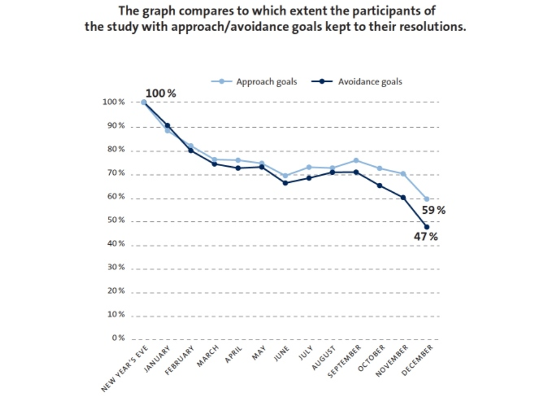It turns out that New Year's aspirations can be maintained longer by changing the 'wording'

Many people will start something new at the beginning of the year or decide on 'New Year's aspirations' to change their past self. A joint
How to succeed in keeping your New Year's resolution --Stockholm University
https://www.su.se/english/news/how-to-succeed-in-keeping-your-new-year-s-resolution-1.531618
Study of 1,000 People Shows The Trick That Helps You Stick to New Year's Resolutions
https://www.sciencealert.com/giant-scientific-study-confirms-the-best-way-to-achieve-your-new-year-s-resolutions
The study began at the end of 2017 with 1066 participants in the study actually thinking about their 2018 New Year's aspirations. After considering the New Year's aspirations, each participant was divided into three groups, 'without support', 'with a little support', and 'with a lot of support', and whether or not they were able to maintain their aspirations based on monthly follow-up. It was investigated. The “supported” group was able to get advice from friends, relatives and researchers to maintain their aspirations.
The group with the highest maintenance rate was the 'with a little support' group, but the difference with 'with a lot of support' was not so large. Professor Par Karlbling of the Faculty of Psychology, Stockholm University said, 'The amount of support given to participants had little to do with the retention rate of aspirations, but there was a big difference in the retention rate depending on how the aspirations were expressed. '. For example, the aspiration of 'stopping eating sweets for dieting' can be rephrased as 'eating fruits several times a day', and it is more likely to be maintained.

Among the participants, those who decided to 'do something' had the highest retention rate, and those who decided to 'do something' could not maintain their aspirations very much. The light blue line in the graph below is the aspiration to 'start something' called the 'approach goal', and the dark blue line is the aspiration to 'stop something' called the 'avoidance goal'. In December, the final month, those who set approach goals had an 8% higher retention rate than those who set avoidance goals.

'People can't'eliminate'behavior, but they can replace it with something else,' says Professor Karl Bring.
Related Posts:
in Posted by log1p_kr







